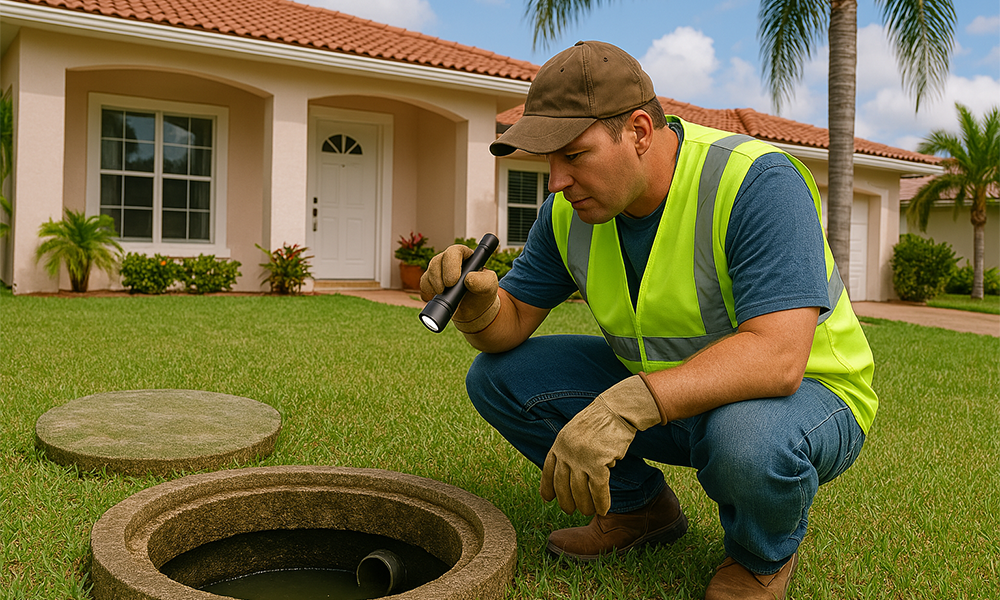
Septic Inspection
A septic inspection is a comprehensive evaluation of a property's onsite wastewater treatment system. It ensures that the septic tank and its components are functioning properly, identifies potential problems, and verifies compliance with local health regulations. Whether you're buying or selling a home, maintaining your current system, or preparing for renovations, a septic inspection provides essential information about this critical part of the property.
Why Septic Inspections Are Important
Septic systems that are poorly maintained or malfunctioning can cause serious health risks, groundwater contamination, and costly repairs. A professional inspection helps prevent backups, system failures, and property damage. It also ensures that the system meets regulatory standards and is safe for continued use.
What a Septic Inspection Includes
During a septic inspection, licensed professionals will typically assess:
- Tank size, material, and accessibility
- Scum and sludge levels to determine if pumping is needed
- Inlet and outlet baffles for functionality
- Effluent filters and distribution box performance
- Drain field condition and signs of saturation or failure
- Water flow from the home to the tank
- Signs of leaks, blockages, or structural damage
The inspector may also run dye or flow tests to confirm that wastewater is properly processed and absorbed by the drain field.
When to Schedule a Septic Inspection
It's a good idea to schedule a septic inspection:
- Before buying or selling a home with a septic system
- Every 3-5 years as part of regular system maintenance
- After major storms or unusually heavy use
- If you're experiencing slow drains, unpleasant odors, or pooling water
Regular inspections can help avoid unexpected failures and ensure long-term system performance.
Benefits for Homeowners
A septic inspection offers several important benefits:
- Identifies minor issues before they become expensive problems
- Protects your property and surrounding environment
- Helps maintain system efficiency and longevity
- Provides documentation for real estate transactions or local permitting
It also gives you peace of mind, knowing your wastewater system is functioning safely and properly.
Septic System Maintenance Tips
After your inspection, you may receive recommendations for improving or maintaining your system. These could include:
- Pumping the tank on a regular schedule
- Limiting water use and avoiding harsh chemicals
- Protecting the drain field from heavy traffic or deep roots
- Installing risers for easier access to the tank
Following these tips can extend the life of your septic system and minimize repair costs.
Schedule Your Septic Inspection Today
Ensure your septic system is safe, efficient, and ready to handle your household needs. Our experienced inspectors provide thorough evaluations and expert guidance to help you protect your property and meet all local requirements. Contact us today to schedule your septic inspection.

